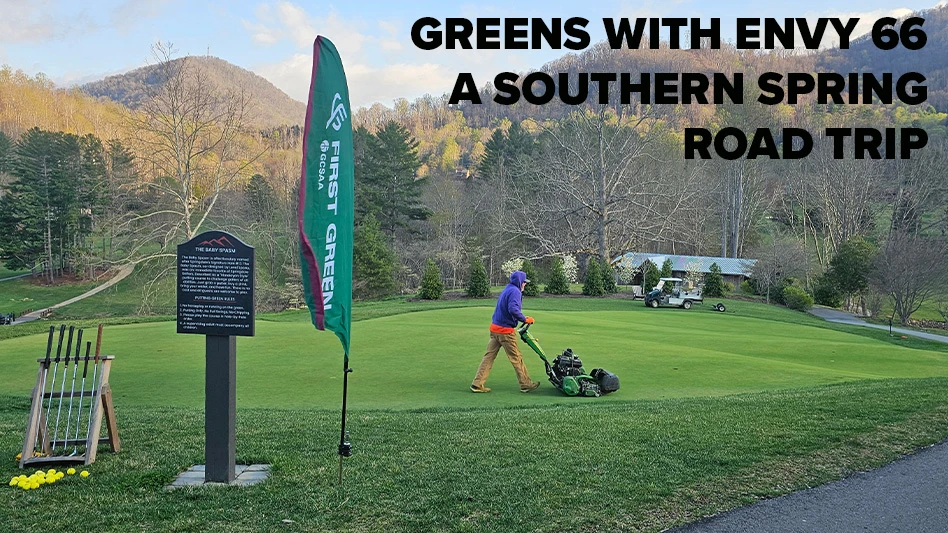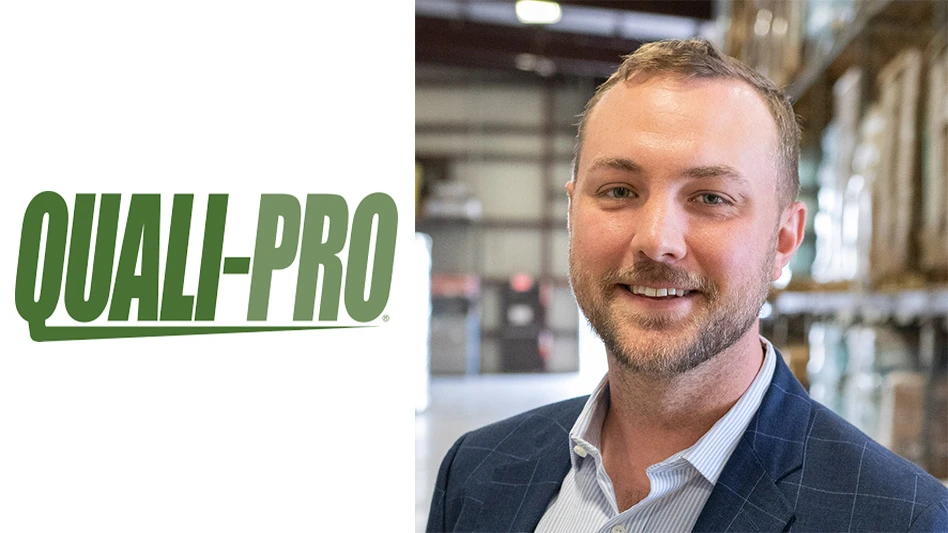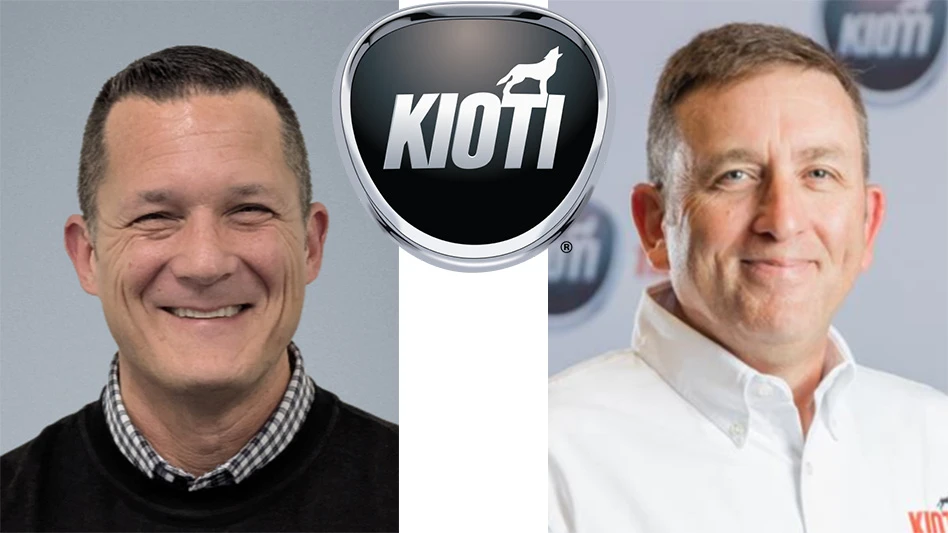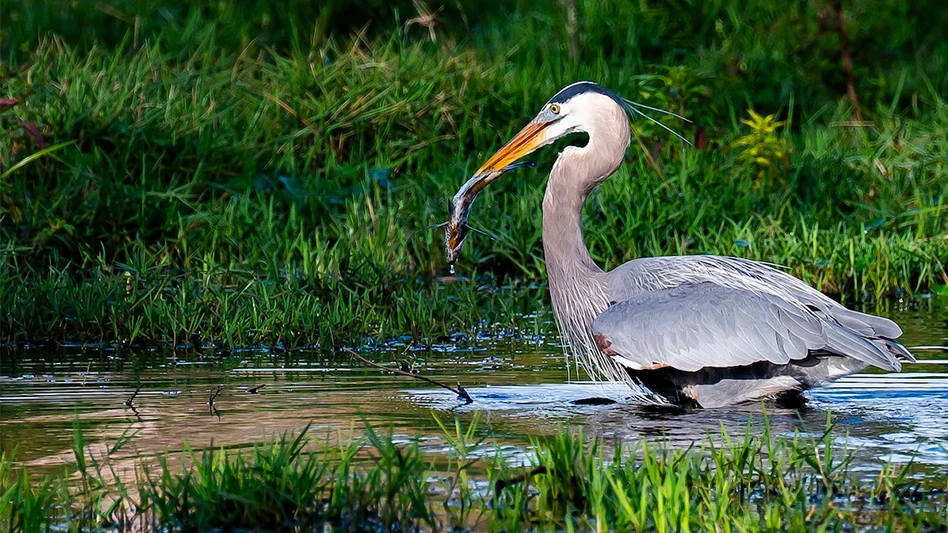
Central Florida’s Brevard County almost left the municipal golf business. Due to financial losses, the county’s board settled on voting to either sell or close its three courses.
But retired newspaper editor and Brevard County resident Stephen Proctor didn’t accept those options. After listening to Tom Becker, a member of the county’s Golf Advisory Committee, speak on the possibility of establishing a nonprofit to save two of the city’s courses, Proctor was inspired.
Brevard County, with a population of nearly 700,000, is found on the Atlantic coast, east of Orlando and home to numerous public and private golf courses. The Habitat at Valkaria in Malabar first opened in 1991 and was designed by Charles Ankrom. It features a par-72, 18-hole course routed among wetlands and forest. The course is narrow and long, making for a more challenging round of golf.

Sitting between the Atlantic Ocean and the Indian River is Spessard Holland of Melbourne Beach, designed by Arnold Palmer in 1977. It is a par-67, 18-hole course featuring scenic views of the waterfront.
The third course, The Savannahs Golf Club in Merritt Island, was given back to the homeowner’s association, as it was the least profitable of the three courses.
Proctor decided to take action to save the two courses he called home. He recruited a few CEO friends from the newspaper world for guidance and a few fellow golfers, and headed to talk with county officials.
“Obviously, I was extremely anxious about the outcome, because if it didn’t work, I wasn’t going to have any place to play golf,” Proctor says. “I had a strong vested interest in it, as did almost every single person who was on the steering committee. All of the people on the steering committee, with the sole exception of the CEOs that I recruited, played their golf at one of these two golf courses.”
After meeting and waiting for votes, the county granted the group a $399,000 loan and gave them a three-year contract to make The Habitat Golf Course and Spessard Holland Golf Course profitable. Golf Brevard was established.
If they were successful in making the courses profitable, they would be eligible for a 10-year extension. It didn’t take long for the group to reach their goals. Within a year and a half, the loan was paid off and Spessard Holland and The Habitat were in the black. The courses earned a 10-year contract in 2021.

The turnaround
Two steps were taken to solve the financial issues facing the courses:
1. Cancel GolfNow. Proctor and the board decided to cancel the booking system due to its costs and non-user-friendly aspects. Being in the Sunshine State, the course’s golfers were predominantly retired and didn’t prefer to use their cell phones to book tee times and check in. In fact, less than 3 percent of their customers used the program to book tee times. The system was difficult for employees and golfers to use, and the system sold the courses’ premium tee times for as low as $10, devaluing the rounds and depriving the courses of revenue.
“Everyone called the golf course or turned up personally at the golf course to book tee times. They just didn’t do it that way,” Proctor says of GolfNow.
While working for the San Francisco Chronicle, Proctor shared an office building with Square, a business operating platform. The board created its own check-in system through Square, which cost a fraction of the price and resulted in quicker, more efficient check-ins.
2. Hire their own greenkeepers. While being run by the county, the maintenance crew was filled with contracted employees. This added 25 to 35 percent to the cost of labor, and the courses didn’t receive “the tender, loving care that they should,” Proctor says, due to their company maintaining numerous courses.
In July 2018, Golf Brevard hired Mike Yurigan as general manager and director of golf, marking one step toward turning around the courses. Yurigan’s father, Adam Yurigan, worked in the industry, including as the superintendent of Rio Pinar in Orlando, home of the Florida Citrus Open throughout the 1960s and ’70s. He also received the FGCSA’s President’s Award for Lifetime Achievement. Because of the relationships Adam and Mike had built over the years, Mike received a call from Steve Lamontagne, who previously worked at Suntree Country Club, another course in Brevard County. Lamontagne heard about the events in Brevard County, and thought Yurigan could be a good fit.
Soon after Yurigan started, he hired Jamie Baker as superintendent. Baker previously worked as an assistant superintendent at several other clubs, most recently Bent Pine Golf Club in Vero Beach. The position with Golf Brevard marked his first head superintendent role.
When Yurigan arrived at the courses, ready to start the work, he was shocked with the conditions. “I kind of had a talk with my wife, and I said, ‘Do I really want to do this? Am I biting off more than I can chew?’”
The crew faced a huge challenge, with around $510,000 to do it. “That put me a little bit at ease, but not a lot,” Yurigan says.

As for the maintenance staff, most employees who were working on the course previously stuck around. Baker helped hire a mechanic and a few new staff members.
After devising a game plan, Baker and his staff began tackling the turnaround. They started by focusing on greens. The surfaces were thinning and weeds needed to be removed.
“That’s what people want,” Baker says. “They want good greens. And we needed to get those into the kind of condition where, when they left, they weren’t disappointed in them.”
Thanks to dedicated treatment, both courses are nearly 100 percent weed-free now.
To get the course into ideal condition, an emphasis was held on redefining fairways. The areas between fairways and roughs were blended and, thanks to mowing and fertility treatments, were able to be redefined.
The Habitat now averages more than 60,000 rounds a year. Spessard Holland surpasses 50,000 rounds annually. Both courses have also seen major renovations in recent years.
As soon as Golf Brevard earned the 10-year contract, The Habitat received a new irrigation system, paid for entirely in cash from profits.
Spessard Holland closed last June and July to sod and introduce new Bermudagrass greens.
“It’s been rewarding, fulfilling, whatever those words are, but it’s been a lot of hard work. The staff has done a great job,” Yurigan says. “But if you asked me that question again, I don’t know if I can answer it in any other way. We started with not a lot, and now here we are moving forward into seven-plus years with no debt.”
Keeping the courses affordable remained a focus. Golfers can purchase a gold membership for $3,400 a year, which includes unlimited rounds of golf at either course and cart fees. “That’s the goal, to make that even possible, that you could build your life around one of our golf courses, and you can afford to do that,” Proctor says.
Affordability is one of Golf Brevard’s three benchmarks for success. The second is having well-maintained courses. The third is keeping customers satisfied. “Those are our only three criteria — be inexpensive, be beautifully groomed, and be a wonderful experience for golfers who think they get a great value every time they come,” Proctor adds.
Big plans and goals await The Habitat and Spessard Holland. The Habitat is planning for tee-box improvements on all 18 holes. The course was designed with five sets of tees. It was expected that the middle tees would see the most play. But that was not the case.
“Most of our play comes out the second set of tees back — not the forward, but the next set back,” Baker says. “And those tees, when they were originally designed, were tiny and there’s just way too much traffic on them now.” Fifteen to 20 of those tee boxes will be expanded for more surface area. Additional plans are in development to improve greenside bunkers.
Golf Brevard also plans for Spessard Holland to receive a new irrigation system in 2026, with new greens for The Habitat in 2027.
Thanks to the organization, the community and the customers, municipal golf in Brevard County will continue to shine. “Everybody tells me thank you all the time,” Yurigan says. “I say, ‘Don't thank me. Thank the staff and thank yourselves for believing in what we’re doing and coming out and just playing golf and having a hot dog or a beer or a soda. Every dollar we make goes back into the golf courses, this facility itself.’”
Yurigan reflects on the journey with the thoughts of his father. “I look back emotionally with that,” he says. “I know my dad would be pretty proud of what I’ve been able to do, putting the group of people together to make it great.”
When asked about his thoughts on the process, Proctor could only express pride. His love for the game and the golf courses kickstarted a journey they will never forget.
“This is the thing I’m most proud of in my entire life, other than the birth of my children and marriage to my wife,” Proctor says. “I’ve had the great fortune to edit two stories that won the Pulitzer Prize for journalism. I’ve had a lot of really good things happen to me in this world, but I’m not more proud of anything than I am with Golf Brevard because that’s something that’s way bigger than me or a newspaper story. That’s all the golfers who play golf in Brevard County, Florida, and they’ll still be playing on these golf courses long after I’ve stopped being the chairman of Golf Brevard.”

Explore the March 2025 Issue
Check out more from this issue and find your next story to read.
Latest from Golf Course Industry
- From the publisher’s pen: Technology diffusion and turf
- Applications open for 2025 Syngenta Business Institute
- Smart Greens Episode 1: Welcome to the digital agronomy era
- PBI-Gordon promotes Jeff Marvin
- USGA investing $1 million into Western Pennsylvania public golf
- KemperSports taps new strategy EVP
- Audubon International marks Earth Day in growth mode
- Editor’s notebook: Do your part





